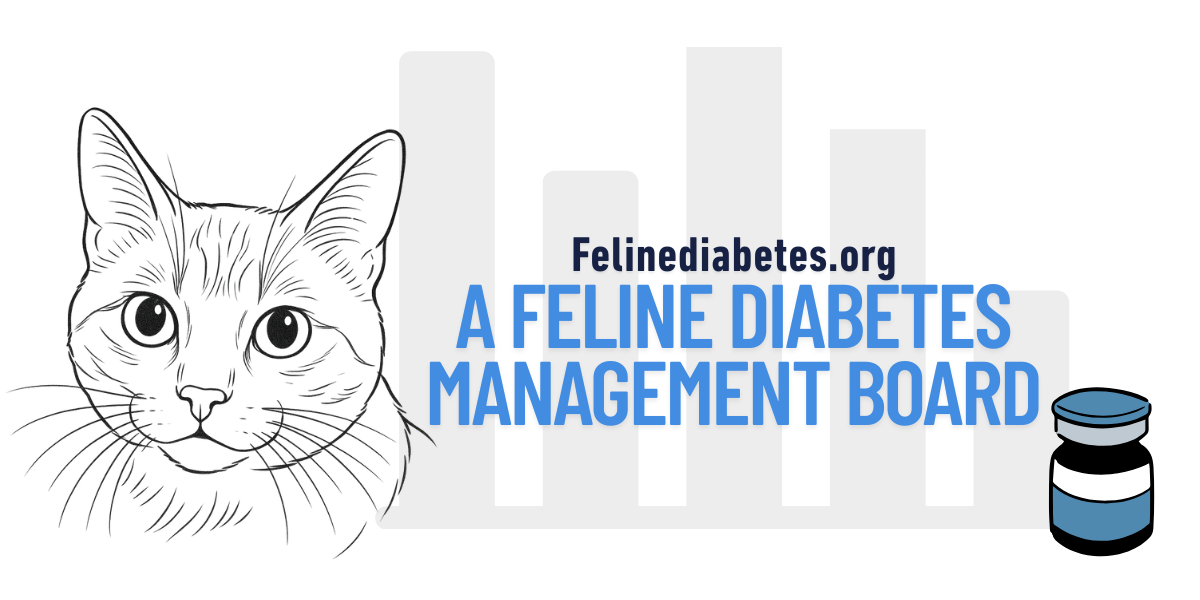 What Are Ketones?
What Are Ketones?
Ketones are substances the body produces when it burns fat for fuel instead of using glucose. This happens when there’s not enough insulin available, and it’s a serious concern for diabetic cats.
Normally, the body filters out ketones through the urine. But when too many build up, it can lead to diabetic ketoacidosis (DKA) — a dangerous, potentially life-threatening condition that requires immediate veterinary attention.
Ketoacidosis Overview
 Why Ketones Matter
Why Ketones Matter
- Ketones can cause serious problems, even when blood glucose (BG) isn't very high.
- Cats can develop DKA without having super high BG numbers, especially if they are:
- Not eating
- Vomiting
- Lethargic
- Fighting an infection
 Symptoms of DKA
Symptoms of DKA
If you notice any combination of the following, test for ketones and contact your vet immediately:
- Drinking more than usual OR not drinking at all
- Increased urination
- Lack of appetite (especially over 12 hours)
- Vomiting
- Lethargy or depression
- Weakness
- Rapid breathing
- Dehydration
- Breath that smells fruity or like nail polish remover
 Testing for Ketones
Testing for Ketones
 Urine Ketone Strips
Urine Ketone Strips
- Available at most pharmacies or online (e.g., Keto-Diastix, Ketostix)
- Dip the strip in fresh urine and follow the instructions for timing
- Results are labeled as negative, trace, small, moderate, or large
- Trace = monitor closely
- Small or above = contact your vet
- Handle and store strips carefully to avoid false readings
 Blood Ketone Meters
Blood Ketone Meters
- More accurate and can detect ketones earlier than urine tests
- Devices like the Nova Max Plus and Precision Xtra test for β-hydroxybutyrate, the ketone most involved in DKA
- Strips can be more expensive but provide real-time results
 When to Call the Vet
When to Call the Vet
Call your vet immediately if:
- Your cat tests positive for more than a trace of ketones
- Ketones are present alongside symptoms like vomiting or lethargy
 Treating DKA
Treating DKA
Mild cases (trace ketones, no symptoms):
- Encourage eating and drinking
- Adjust insulin dose (consult your vet)
- Monitor closely for changes
- Require hospitalization
- Treatment may include IV fluids, insulin, electrolyte support, and 24/7 monitoring
- DKA is fatal without prompt treatment, so do not delay care
 Final Tips
Final Tips
- Always test for ketones if your cat isn’t acting normally (even with low or normal BG)
- Keep test strips or a blood ketone meter on hand
- Watch hydration, food intake, and insulin consistency
- Be proactive — early detection saves lives
Questions or need help interpreting ketone results? Post in your applicable insulin forum and someone will assist you.
- Tim
Change Log:
Created on 5/19/2025.
Sources:
Marje and Gracie. "Ketones, Ketoacidosis, and Diabetic Cats: A Primer on Ketones." Feline Diabetes Message Board, 13 Dec. 2020, Ketones, Ketoacidosis, and Diabetic Cats: A Primer on Ketones | Feline Diabetes Message Board - FDMB.
Management of Feline Diabetic Ketoacidosis - WSAVA2013." Veterinary Information Network, VIN, 2013, https://www.vin.com/apputil/content/defaultadv1.aspx?catId=35300&id=5709925&pId=11372.:contentReference[oaicite:3]
